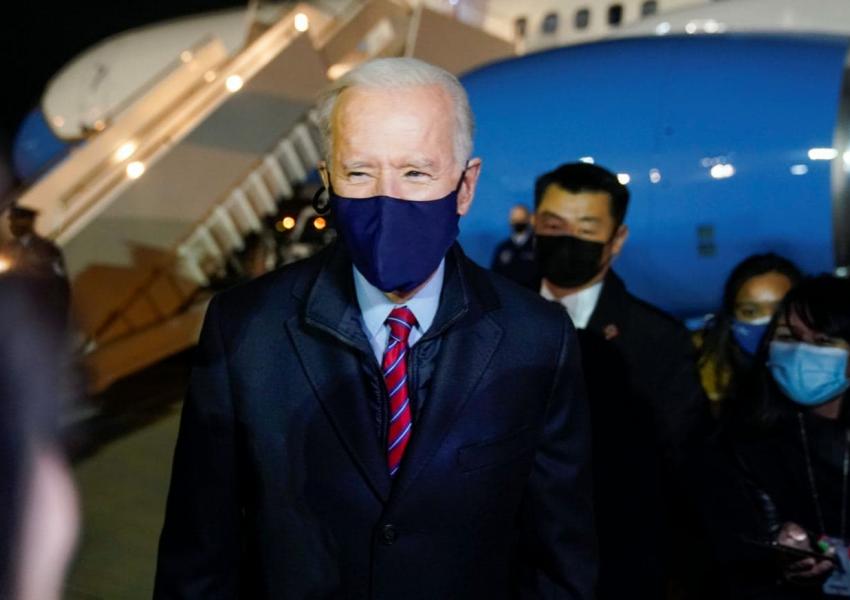
Biden Seeks Consensus On Iran Strategy As Nuclear Experts Show Growing Concern
In just its third week, the Biden administration is unfolding an Iran strategy through multilateral engagement and whatever consensus it can muster. Biden’s national security team convened on Friday (February 5) reportedly focused on Iran, although spokeswoman Jen Paski said there were “no pending policy announcements” over reviving Iran’s 2015 nuclear deal with world powers.
Also on Friday, talks took place virtually between United States Secretary of State Antony Blinken and the foreign ministers of the E3, the three European signatories of the 2015 agreement.
Both US President Joe Biden and Iranian President Hassan Rouhani have expressed a desire to revive the agreement, which President Donald Trump abandoned in 2018 before imposing draconian sanctions that prompted Iran to expand its nuclear program beyond limits set by the deal, known as the JCPOA (Joint Comprehensive Plan of Action). Both Iranian and US officials have said they expect the other side to move first.
The sharpest sense of urgency – at least in public – over the situation has been shown by the International Atomic Energy Agency, which monitors Tehran’s atomic facilities under the Nuclear Non-Proliferation Treaty (NPT) and verifies Iran’s compliance, or not, with the JCPOA.
According to the Wall Street Journal of February 5, IAEA inspectors found unexplained traces of radioactive material during inspections in the autumn, but the agency’s greater concern is Iran’s continuing enhancement of its nuclear program and its looming commitment to reduce on February 21 co-operation with IAEA inspectors.
An analysis from Bloomberg, published Saturday [February 6] explored options under discussion in the Biden team to reduce tensions by offering Iran “tangible relief” from sanctions: these “include providing backing for International Monetary Fund lending to Tehran for coronavirus relief and easing up on sanctions that have stymied international coronavirus aid from getting into Iran…Such moves could be justified on humanitarian grounds.” Washington could also reduce pressure on Iran’s oil exports, Bloomberg noted.
But while multilateral efforts – talks with regional allies, with the E3 and perhaps through JCPOA structures – inevitably take time, quick unilateral US tension-reducing steps would have no guarantee of a positive Iranian response. As Bloomberg pointed out, “Skeptics fear that easing oil sanctions now would deny the US a key source of leverage and make Iran less likely to go back into the deal.”
In December and January interviews with Reuters, IAEA chief Rafael Mariano Grossi, pointed out that JCPOA revival required what has been termed ‘sequencing,’ some agreement over which steps should be taken, and when, by both the US and Iran.
Part of that would be a timetable for easing sanctions – which itself would require agreement over which sanctions were ‘nuclear related,’ as stipulated in the JCPOA. Even after 2015, Iran argued that not all sanctions had been lifted as required. But the greater challenge in 2021 may lie in the complications left by the Trump administration, which piled on sanctions it claimed would complicate Biden’s attempt to revive JCPOA while insisting they related to ‘terrorism,’ not the nuclear program.
Kenneth Katzman, analyst on Middle East issues at the Congressional Research Service, recently told the Atlantic Council that Trump’s ‘terrorism-related’ sanctions on Iran’s Central Bank were the striking example. “Unless Iran’s central bank is going to be allowed to freely operate in the international banking system, Iran is not going to accept returning to compliance with the JCPOA,” Katzman said.
Hence the IAEA concern. Saturday’s Bloomberg piece quoted an “IAEA diplomat” referring to “sleepwalking into conflict,” a reference to the misunderstandings, mis-judgments, and unexpected, barely-related events that led to the First World War.





